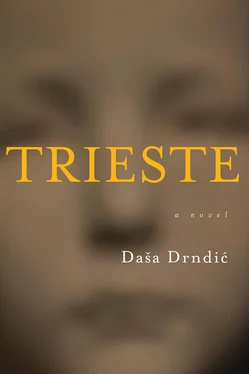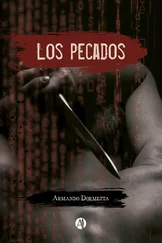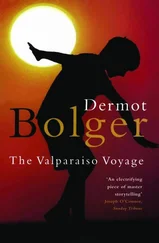I heard that Wirth visited the camp while they were building the gas chambers and he said, Marvellous! We’ll try them out straight away. Bring in those twenty-five Jewish workers and pack them all into one of the chambers, so we can see how it works. That is the way they talked. All the time he’d be brandishing his whip, they said, and he beat his own men. I got there later.
Would it be true to say you got used to the liquidations in time?
Well, apparently I did.
In days? Weeks? Months?
It was months before I could look each of the future victims in the eye. I repressed the nausea: I tried to create a special place. I ordered flowers to be planted at the camp, new barracks, new kitchens, I brought in barbers, tailors, shoemakers, carpenters. There are many ways in which a person can chase away troubling thoughts, and I used them all. But in the end only drinking helped. I had a large glass of brandy before I went to bed each night.
And then it all became easier?
Not really. But I concentrated on my work. I worked hard.
And finally you forgot you were working with people?
When I was on a trip once, years later in Brazil, my train stopped next to a slaughterhouse. The cattle grazing in the pens trotted up to the fence and stared at our train. They were very close to my window, one jostling the other, looking at me through that fence. I thought then, This reminds me of Poland. That’s how the people looked at me there: trustingly, just before they went into the… I couldn’t eat tinned meat for a long time after that. Those big cows’ eyes staring at me, those animals who had no idea that in no time they’d all be slaughtered…
So you didn’t feel the camp inmates were people?
Cargo. They were cargo.
When did you begin to think of people as cargo? When you first came to Treblinka you say you were horrified by the heaps of dead bodies lying all around the camp.
I think it started the day I realized that Treblinka was a death camp, a Totenlager. Wirth was standing there, next to the pits full of blue-black corpses. These corpses had nothing to do with humanity. They were masses of rotting flesh. Wirth asked, What shall we do with this rubbish? Maybe that’s when I thought, of course, they are just plain cargo.
There were many children in that “cargo”. Do you know that not a single child survived Treblinka? Did you ever think, what if those were my children? Did you ever think of how you would feel in the position of their parents?
No. You see, I did not look upon them as individuals. They were always a mass for me. I sometimes stood on the wall and watched them being herded through the tube. They were naked, crowded, packed together, driven by whips, running towards the ovens…
Why didn’t you take any steps? Why didn’t you put a halt to the horror? You were high in rank.
Impossible, impossible. This was the system, and Wirth invented it. The system worked. And because it worked, it was irreversible.

Werner Dubois, S.S.-Oberscharführer, senior squad leader. Born in Wuppertal on 26 February, 1913. Raised by grandmother. Eighth-grade education. Construction and graphics worker, brush maker, farmer. Driver in the S.S.-Gruppenkommando Oranienburg, driver and guard at Sachsenhausen concentration camp, in Brandenburg, Grafeneck and Hadamar. As cremator, transports corpses and urns. Transferred as a driver in 1941 to the O.T. (Organization Todt) in Russia. In Lublin (Aktion Reinhard) in 1942, after that in Belzec until April 1943. At trial, twenty-eight years later, describes killing six people with a 9-mm Belgian F.N. Browning, and, at Wirth’s command, another six exhausted Jews, who were later flung into a pit. Supervises the arrival of all transports. Transferred to Sobibor after the closing of Belzec in June 1943. In Sobibor loves shooting at inmates. Badly wounded during the uprising. After hospital treatment is transferred to Trieste as member of Aktion R, tasked with killing partisans. In May 1945 arrested by American soldiers. Released in late 1947. Works as locksmith until final arrest. At Munich trial (1963–4) acquitted of charges; in Hagen (1966) sentenced to three years in prison for participating in killing at least 15,000 people in Sobibor. Dies in 1973, before the 1976 Trieste trial. At trial for Sobibor crimes, only Dubois admits guilt: A crime was clearly committed at the camp. I aided in that crime. I will consider it a just sentence if you declare me guilty. Murder is murder. All of us are guilty. The camp was run by a chain of command and if one link had failed, the whole system would have collapsed… We did not have the courage to disobey.
Friedrich Tauscher, born in 1905, S.S.-Oberscharführer, otherwise a detective, works in Belzec as instructor for cremating corpses. From 1943 to 1945 serves in Trieste and surroundings. Commits suicide in prison in 1965.
Lorenz Hackenholt, born on 25 June, 1914. At wife’s initiative, declared dead as of 31 December, 1945. Member of S.S. from 1934. Begins career as driver at Sonnenstein, then works in Grafeneck, Belzec, Sobibor and Treblinka. One of the key organizers of the euthanasia programme. Wirth’s favourite. Participates in Belzec and Treblinka installing gas chambers, which he later runs. In Belzec and Treblinka they call the gas chambers Stiftung Hackenholt (Hackenholt Foundation), and on the façade of each gas chamber, at Lorenz’s order, a large Star of David is mounted for all to see. In 1943 promoted to S.S.-Hauptschar-führer. Serves in Italy from 1943 to 1945. Drinks heavily; loves taking photographs. A big man, more than two metres tall. In 1945 simply vanishes under circumstances that have never been explained; police and secret services search for him in vain until mid-1970s, when the Hackenholt case is placed ad acta. S.S.-Oberscharführer Erich Bauer, also stationed at San Sabba and imprisoned for life in 1950 for crimes committed at Sobibor, where more than 250,000 Jews were killed, declares under oath in 1961 that Hackenholt gets through the war alive and is in hiding using the name Jansen, Jensen, or Johannsen, working as a truck driver. Bauer also claims that Hackenholt spends the last days of the war somewhere near Trieste with a woman named Monika. The police in Trieste question all members of the R1 unit — Frau Lindner, Frau Fettke, Frau Schmiedel and Frau Allers, as well as Dietrich Allers, the final San Sabba commander — but no-one knows anything about Hackenholt being involved with any woman in Italy. They all agree, however, that Hackenholt is a common drunkard and few of them fraternized with him. S.S.-Scharführer Karl Schluch, Hackenholt’s colleague from Treblinka and San Sabba, who is never convicted (after his trial in the 1960s, he is cleared of all charges), claims that Hackenholt is ruthless and brutal. S.S.-Unterscharführer Robert Jührs (cleared of all charges) is also in Belzec and Trieste with Hackenholt, and says: “He wanted to piss with the big boys, but he couldn’t lift his leg.”
Hackenholt is charged with participating in the murder of more than 70,000 German mentally ill patients, as well as the liquidation of more than 1,500,000 Jews during Aktion Reinhard.
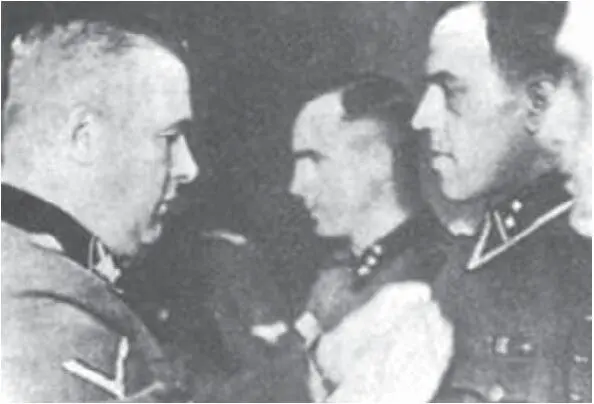
Globočnik honours Hackenholt with the Iron Cross, Trieste, 1944
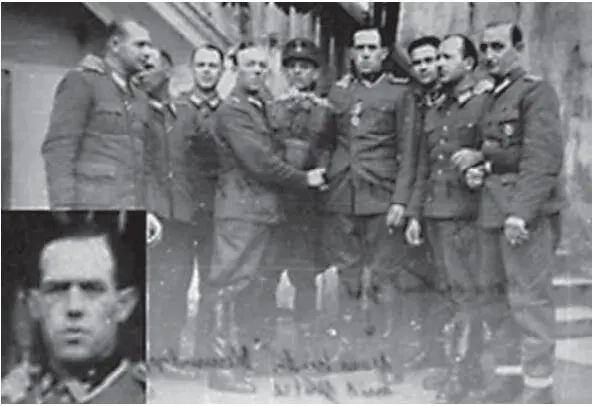
Читать дальше
